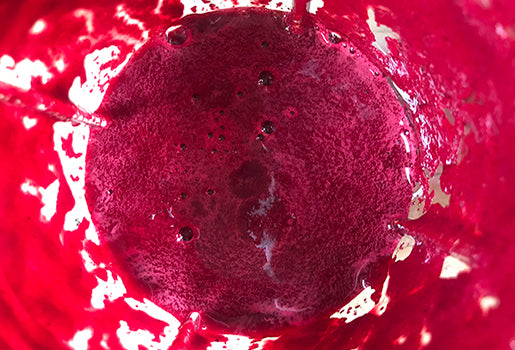Why The Beauty Industry is Fighting Back and Calling Us Fear Mongers-Part I

In the past week, I have been seeing all these articles floating around about how the green beauty industry is hijacking customers by using fear mongering tactics.
This is a very complex topic that cannot be addressed with due justice without digging into the psychology of power, psychology of consumers, political-economic history, capitalism, the role of media, human emotion, and the role of government. The beauty industry is never only about beauty.
But for the sake of brevity, and to focus my response to this ludicrous claim, I'm going to forego the deep digging into all these disciplines and start by illustrating the ways of this powerful industry and what happened to the FDA. I will also leave you with some insight on how to counter some very compelling arguments the beauty industry and its supporters use to discredit the green movement.
The reoccurring sentiment I have noticed is this contention over the fact that the green beauty industry has grown significantly from comprising only of 3% of skincare sales in 2002 to a staggering 21% today. This increase is said to be because of fear mongering tactics employed by green beauty movers who have avidly vilified the effects of ingredients used in mainstream skincare products. "It's unfair to make us feel bad about what we are putting on our skin", they cry. Or "It makes me sad that people are afraid to use their face cream," said the author of Your Beauty Products Are Not Going To Kill You. (Out of respect I will refrain from doing a huge eye-roll). Another quite naive, yet widely circulating, the supposition is that "it's not because it's natural (or organic) that it means it's safe and effective".
To validate their cries, beauty industry experts (mainstream, that is) and cosmetic chemists have been called into the discussion to confirm that indeed ingredients such as aluminum and parabens are in fact safe. They go as far as confirming that not all natural products are safe to use--which I find utterly insulting that they need scientists to tell us, adults, that. What is even more disturbing is the hidden political agenda behind the attempt to make people feel comfortable with the toxic ingredients in their skincare.
The beauty industry is under the auspice of multi-national conglomerates that also run the food industry. What's the connection? The connection is that knowing how the food industry works and what food producers do to get Congress to pass laws in support of their interests, is exactly what happens in the beauty industry because they are operated by the same people with the same greedy agenda.
Did you know that up until the 1990's, the FDA required scientific evidence to support any claim made on any label? However, Food producers galvanized farmers and congressmen and hired lobbyists to work together to change the FDA rules. New adjustments made to the FDA allowed food labels, supplement labels and yes, even drug labels to make claims WITHOUT having to provide evidence. They argued that it should be up to the individual to educate themselves about the safety or dangers of a given ingredient or product. This resulted in the common practice of co-opting scientists, doctors, nutritionists and entire university departments to research and circulate information that advanced their goals. (More in my next blog).
The push back against our green movement is strong because it is threatening these companies as they watch the masses switch to natural products. So, they hire experts to debunk our convictions that most ingredients used in skincare are harmful in the long run.
How do we know this? Let's at least assume it, considering that of the more than 10,000 ingredients used in our skincare products, only 10% have been tested for "safety". And even with those ingredients marked as safe by the FDA, time has shown direct and indirect links to cancer i.e. lead, formaldehyde, parabens, sodium lauryl sulfate etc. Secondly, when private entities that are committed to human and environmental safety, are being discredited and accused of misinforming the public it's an indication that it's time to weigh the arguments and consider who is saying what, and why.
To get at the bottom of this, continue by sitting with these thoughts and seriously questions the logic behind the ideas the beauty industry (and its advocates) is spreading:
They say: "Not all natural/organic things are safe for you"
Consider: If they are trying to validate their use of questionable ingredients, why on earth are they telling us that not all natural/organic is safe? Think about who their message is targeting? Question why they chose to target them.
They say: "The green movement is a pretentious craze of the urban elite. If it was so safe, why are they excluding a whole at-risk population?" (link to article above).
Consider: While it is true that natural green products are not made available to all economic groups, it doesn't mean the cause is a pretentious or superficial one. It only means that 1) making natural/ organic plant based skincare is more expensive because of the ingredients, where/how it's sourced and because most makers are relatively small-scale and 2) makers in this industry have strategically targeted their clientele based on their company's brand and goals.
They say: "It's not fair to mislead people with fear tactics"
Consider: Why do they think it's unfair when 90% of the ingredients used have never been tested. What are they protecting? Industry leaders are protecting their companies. Bloggers and friends of the beauty industry are protecting themselves: no one wants to be wrong about using things they have long been using. It brings about the guilt that they cannot easily handle, therefore, they prefer not to rock the boat. Think about all those people you know who, despite what is commonly known, continue with the same bad habits and just don't want to hear about it. It's also change and humility that people fear.
They say: "Trust me. It's not in the industry's interest to kill off its customers"
Consider: Hmmm, is that so? This is a very compelling statement but think about it long enough and you will see that it's not in their interest to preserve life either. No one dies immediately from the use of toxic ingredients--that is why so many argue that they are safe. It's over time that the negative effects start to manifest. And because death can be due to several interconnected variables, these industries have no urgency to change up their formula. Besides, new customers come in flocks every generation. Why give up making something that yields a huge profit margin by using ingredients that are so cheap to manufacture in a lab?
What are your thoughts so far?
To be continued...
Leave a comment
Comments will be approved before showing up.



